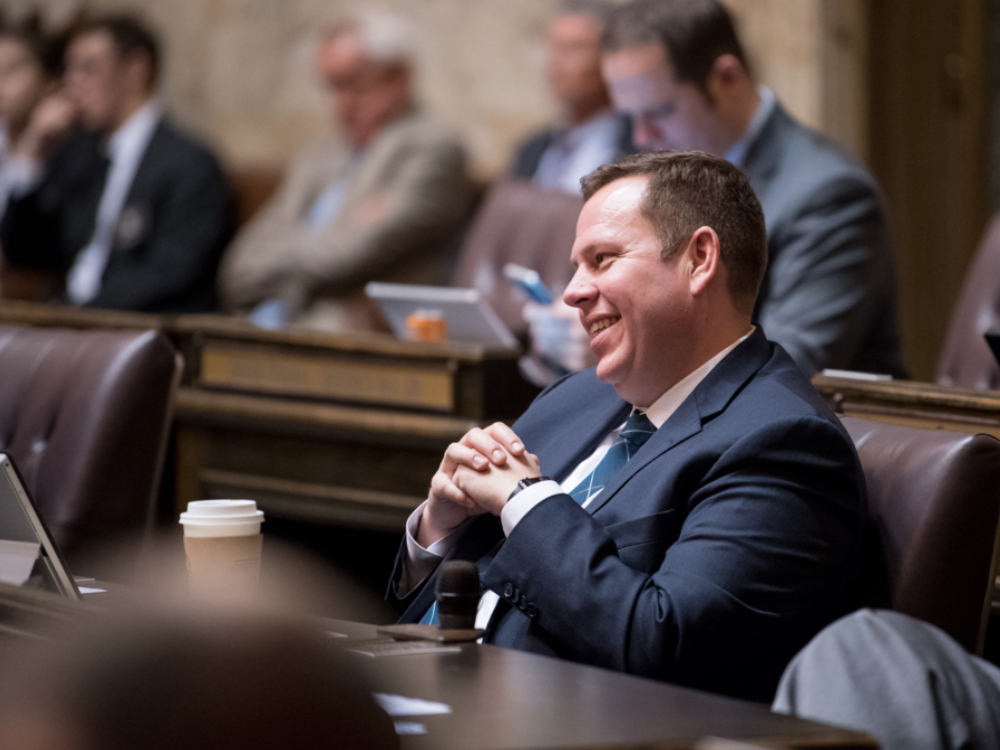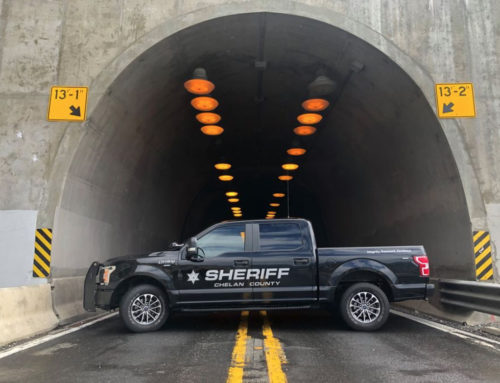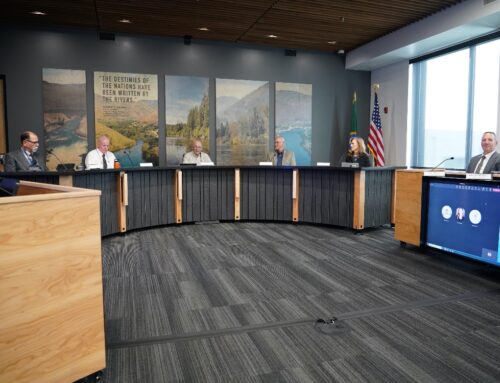Remote Testimony, Budgets, Capital Gains, Gas Tax and other information
Information released by Rep. Mike Steele
Dear Friends and Neighbors,
We reconvened for the 2021 legislative session nearly a month ago amid a set of entirely new challenges. The unique circumstances created by the ongoing effects of the pandemic have cast a shadow over most of our work. But if there is a silver lining to a completely virtual session, it would be the opportunity for people all over the state to testify remotely on bills being considered by the Legislature.
Remote testimony continues to be one of the most positive aspects of our new online work environment. Although the “pilot” program began in 2020, remote testimony has taken center-stage amid the pandemic. What many don’t know is testifying via easy-to-access online tools was the brainchild of Republicans, many from eastern Washington, who pushed to get this option for their constituents.
In previous years, Washingtonians found it difficult and sometimes downright impossible to testify on a bill. For eastern Washington residents, it often takes more than a day to travel to Olympia and back. Because session begins in January, drivers can find themselves “cut off at the pass” when winter weather prevents them from coming.
That’s why Republicans sought a solution. Remote testimony just made sense. Now it’s become a bright spot in what has been a difficult transition to vetting legislation remotely. In the years to come, I hope it becomes a mainstay in the legislative process.
Want to learn more about how you can testify remotely? Click here. Additionally, my website contains a list of several other resources for navigating the 2021 virtual session. Click here to learn more.
Budgets and taxes

Good public policy in the aftermath of the virus means carefully examining statewide needs and prioritizing “wants” below policies that bolster recovery. Private development, new jobs, and business growth all need to be encouraged. That means—dare I say it—tough choices when it comes to budgeting.
Although the pandemic-driven recession initially caused a steep decline in tax revenue, the forecast has steadily improved. Our economy is in the slow process of recovery. Even with the economic impacts of COVID, state tax collections continue to increase year-over-year. In fact, state revenue has increased every biennium since 2011-13.
That means, while there are still hard decisions ahead, budget writers and legislative decision-makers have more than adequate numbers at their disposal for the next budget cycle, without making significant spending cuts to services or raising taxes. And, frankly, if there was ever a time not to increase taxes, it would be amid a global pandemic. People need relief, not more taxes.
Unfortunately, that’s not the direction the governor’s budget proposals seem to go. His 2021-23 operating budget includes more than $4 billion in new spending, with virtually no cost-saving measures. If enacted, it would represent a more than $13 billion increase in state spending since the 2017-19 biennium. And, even more concerning, in the governor’s proposed 2021-23 capital budget—which funds local infrastructure projects across the state—the spending is so out of control he wants to borrow more than $1.25 billion from future bienniums.
As most of you know, I serve on the House Appropriations Committee, whose primary task is considering the operating budget, and I’m the lead Republican on the Capital Budget Committee. I can truthfully say, after listening to hours of testimony on both these budgets, I’m left wondering what the governor is looking to accomplish.
Although his plan includes some amount of COVID relief, raising taxes now on working individuals, families and businesses will negatively affect our state’s fragile economic recovery. Despite high revenue numbers, many small businesses—including restaurants, retailers, and others in the hospitality sector—continue to struggle. According to the Employment Security Department, unemployment throughout the state continues to hover around six percent. Raising taxes now will hit people already severely impacted by the governor’s continued restrictions doubly hard.
While taxes are one way of addressing budgeting priorities, there are several other solutions, including reducing spending, shifting costs, and making tough decisions on discretionary spending items. Tax increases are not the answer. We can and should do better.
Another attempt at a capital gains income tax
Constitutionally dubious, Democrats have pushed for a state graduated capital gains income tax several times over the years. Senate Bill 5096 would impose a 9% income tax on capital gains as small as $25,000. Not only is a capital gains income tax prohibited by our state’s constitution—and certain to be challenged legally—it’s a wildly unpredictable way to collect revenue.
With all that said, even with its volatility, I might be willing to have a conversation about a capital gains tax if Democrats would roll back things like B&O taxes in exchange. But they won’t. Instead, it would be yet another layer on top of our already hefty tax burdens.
Gas taxes

Gasoline is not a luxury item. It is a costly necessity. That’s why lower- to moderate-income households are hurt the most when gas prices increase. This is especially true in eastern Washington. Unlike big urban areas like Seattle, we don’t live in small, self-sufficient communities where our workplaces, families, and friends are nearby.
That’s why it’s particularly troubling to me that the House Democrats have introduced a massive $26 billion transportation package that includes an 18-cent increase in the gas tax over the next two years, plus a fee on carbon emissions. This increase could result in about $1 of taxes for every gallon of gas—giving Washington state the highest gas tax in the nation.
Here’s the bottom line: raising transportation costs will cut deeply into household budgets, forcing many in lower-income brackets to forgo other necessities like rent, food, and health care. For thousands across the state struggling to keep a roof over their heads and food on the table, raising gas taxes will only drive them further into poverty.
Thank you!
Despite the frustrations of participating in a virtual session, I encourage you to stay engaged in the legislative process. If you need help or would like to share ideas or comments on public policy issues, contact me. I’m always happy to hear from you.
Sincerely,

Mike Steele
12th Legislative District
RepresentativeMikeSteele.com
122F Legislative Building | P.O. Box 40600 | Olympia, WA 98504-0600
mike.steele@leg.wa.gov
360-786-7832 | Toll-free: (800) 562-6000








